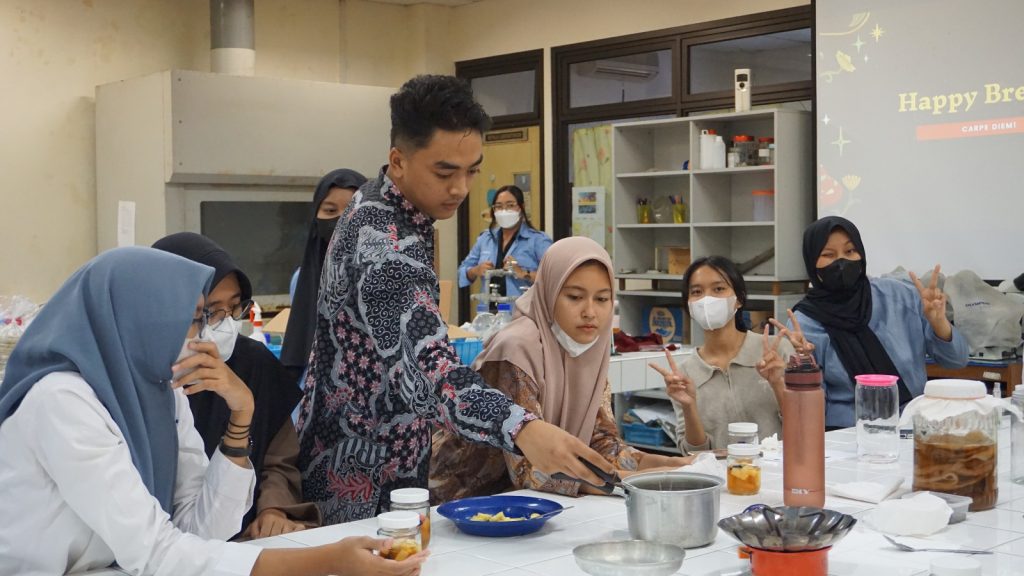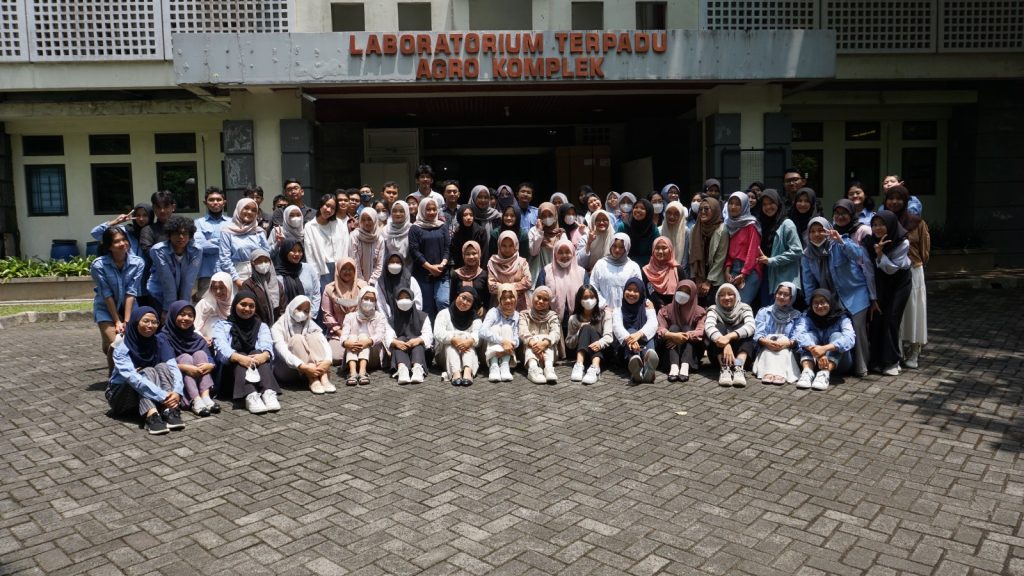
The Agricultural Microbiology Student Association (PERMAHAMI) of the Faculty of Agriculture, Universitas Gadjah Mada (Faperta UGM) successfully held the Microbiome Creation Product (MCP) 2024 at the Integrated Laboratory of Faperta UGM on 26 October 2024. The program was attended by 45 high school students from Yogyakarta and surrounding areas, as well as 25 students from the Agricultural Microbiology Study Program at UGM. The event aimed to introduce the field of microbiology and showcase microbiological products in the form of kombucha, created in various flavor variations.
The event began with a presentation on kombucha by Uways Irfany, a student of Agricultural Microbiology (2020). This was followed by a practical session on making basic kombucha, followed by an interactive Q&A session.

MCP participants also had the opportunity to learn firsthand how to make kombucha, adding various fruits and flowers such as apples, pineapples, and butterfly pea flowers into mini jars containing kombucha tea. These mini jars could then be taken home to ferment for another 2-3 days before being consumed.
Najmaturrahma, the organizer of MCP 2024, stated that the active participation of the attendees made the event interactive.
“It was very enjoyable to see the high enthusiasm of the participants during the kombucha-making practice. They were so curious and didn’t hesitate to ask questions, even after the event finished many of them followed up about the kombucha they made,” said Najma.
Najma also expressed her hope that the event would provide valuable experiences for the participants.
“I hope the knowledge shared during the event is well absorbed, and that the participants not only learned but also enjoyed and remembered the experience of taking home the mini jar of kombucha they made themselves,” she added.
Desi Utami, S.P., M.Env.Sc., Ph.D., who gave a speech as a representative of the Department of Agricultural Microbiology faculty, mentioned that with the MCP 2024 event, it is expected to increase high school students’ interest in enrolling in the Agricultural Microbiology Study Program. Desi also praised the committee for preparing the entire MCP program so well, making it beneficial not only for Agricultural Microbiology students but also for high school students in Yogyakarta.
The MCP 2024 event concluded with a “Tour de Faperta” session, where participants were guided on a tour of the Faculty of Agriculture. This activity is expected to introduce the potential and benefits of microbiology to young generations and encourage their interest in developing microbial-based fermentation products.
Through this activity, the Department of Agricultural Microbiology has contributed to SDG 1: No Poverty, SDG 2: Zero Hunger, SDG 4: Quality Education, and SDG 9: Industry, Innovation, and Infrastructure.
Author: Yomita Misya & Agrit Kirana Bunda
Editor: Desi Utami
